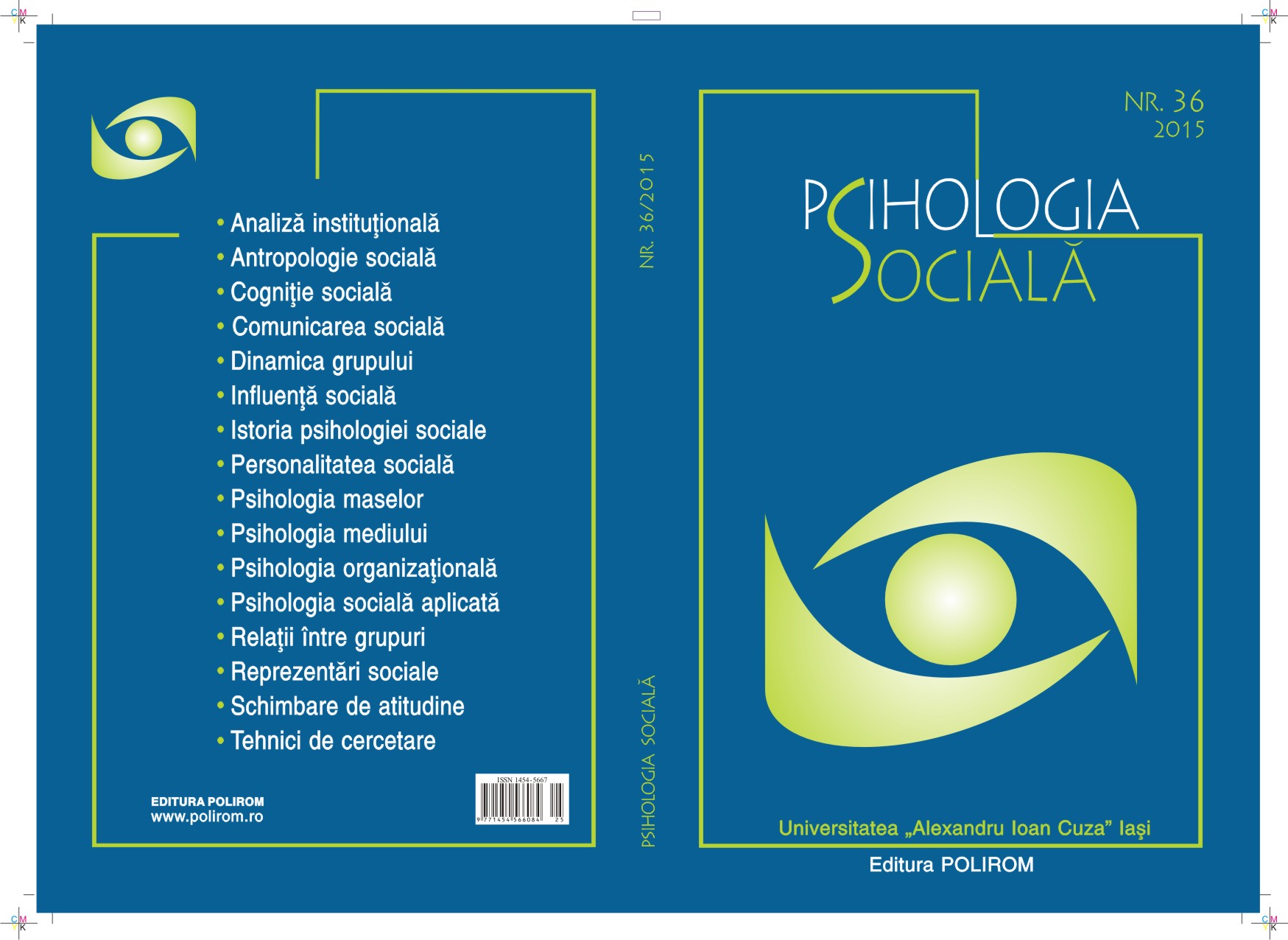Cognitive features of morality
Cognitive features of morality
Author(s): Georgiana ZugravuSubject(s): Social Sciences
Published by: EDITURA POLIROM S.A.
Keywords: moral judgment; information processing; moral dilemmas;
Summary/Abstract: The present study explores the topic of psychological mechanisms underlying moraljudgments, with a focus on the contrast between two types of information processing: consciousand unconscious thought. Participants read either an incidental scenario, or an instrumental oneand than answered a set of five questions designed to capture the extent to which they approve ofharmful actions that maximize good consequences. The responses were presented either after threeminutes of carefully analyzing the dilemma (conscious thought), or immediately after reading thedilemma (spontaneous thought). Other participants were asked to solve a series of anagrams forthree minutes after the presentation of dilemmas and before giving their responses (unconsciousthought condition). Unconscious thinkers made more utilitarian evaluations than conscious thinkers.However, our results suggest that the explanation does not lie in the capacity of unconscious thoughtto override people’s primary reaction to moral dilemma. Contrarily, this type of informationprocessing augments deontologists’ negative emotions. Additional evidence advocate no correlationbetween participants’ moral profile and the type of moral evaluation they provide (deontologicalversus utilitarian) in none of the thought condition. The implications of this result are explained inrelation to bottom‑up processes and alocentric evaluations.
Journal: Psihologia socială
- Issue Year: 2/2015
- Issue No: 36
- Page Range: 53-64
- Page Count: 10
- Language: English
- Content File-PDF

